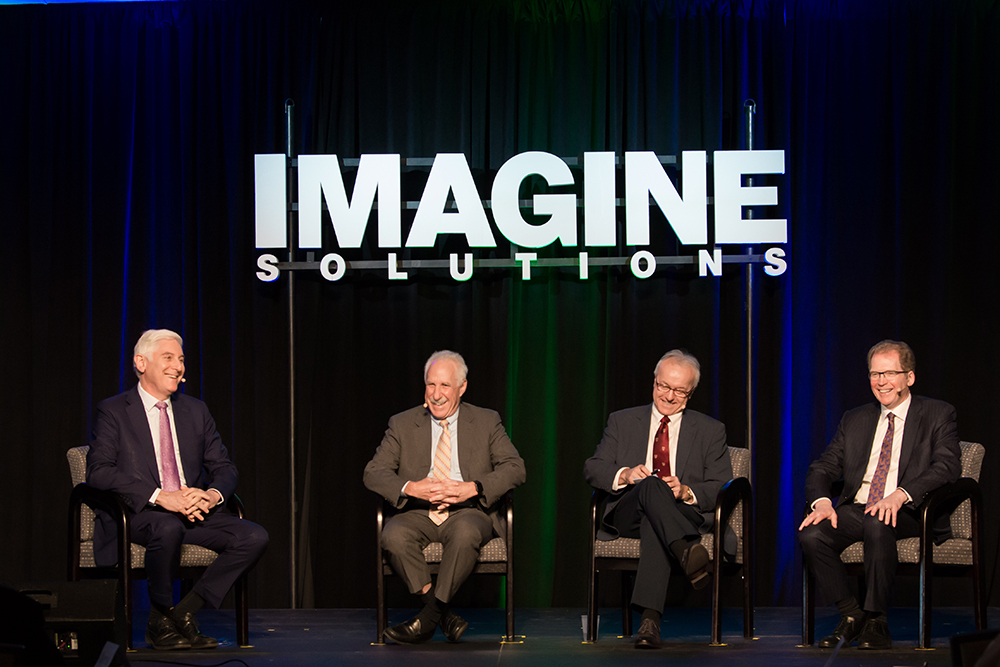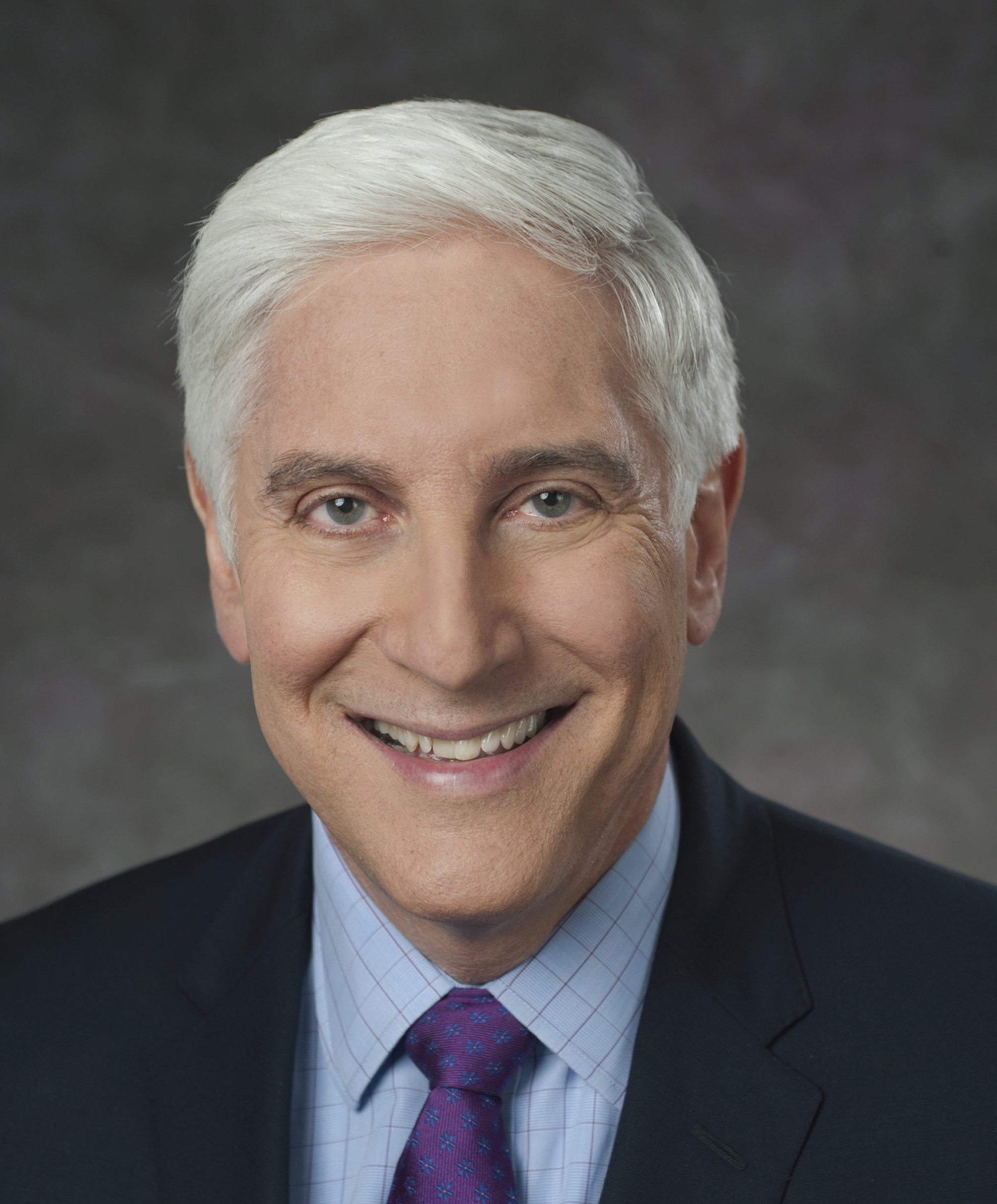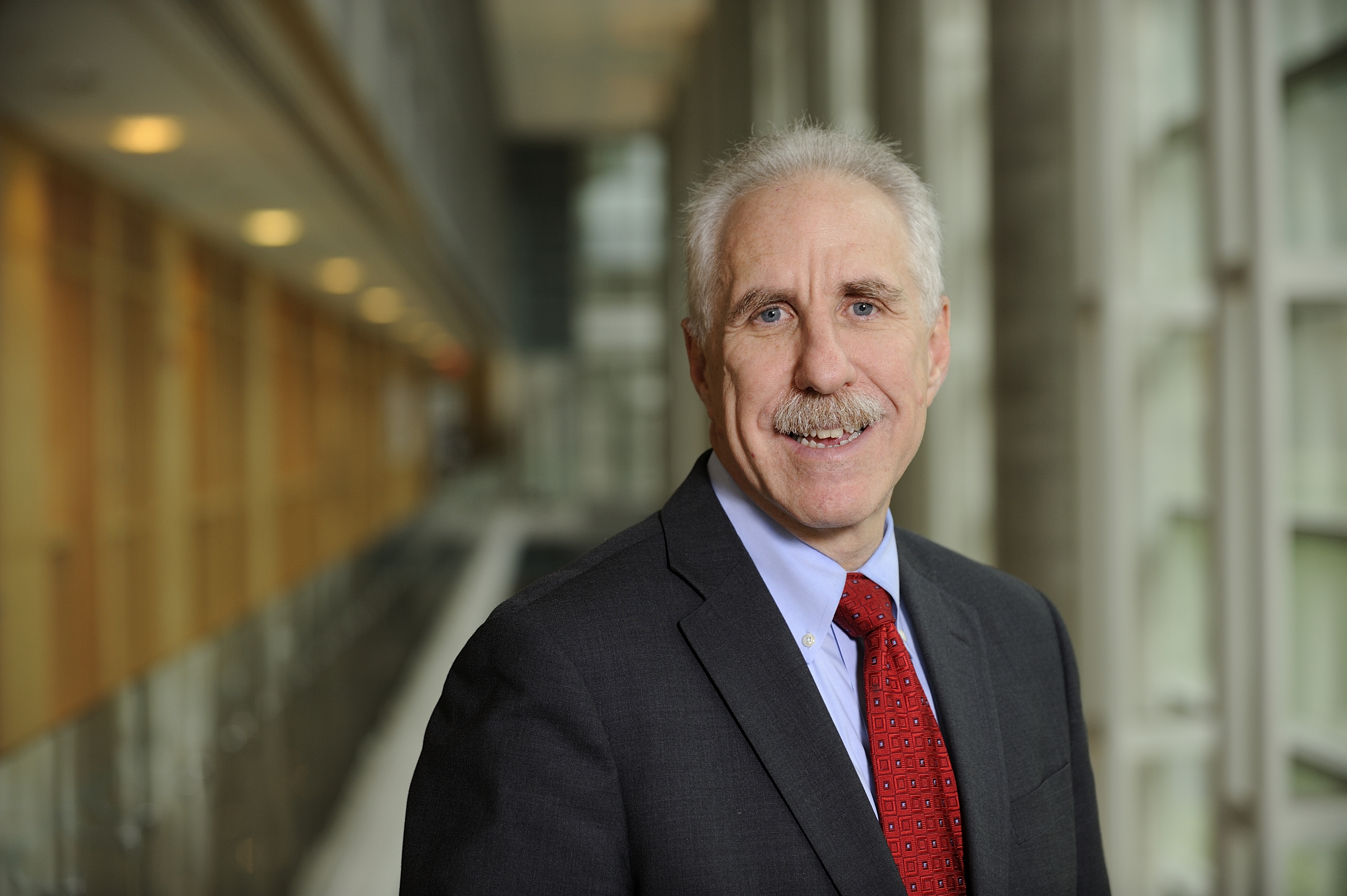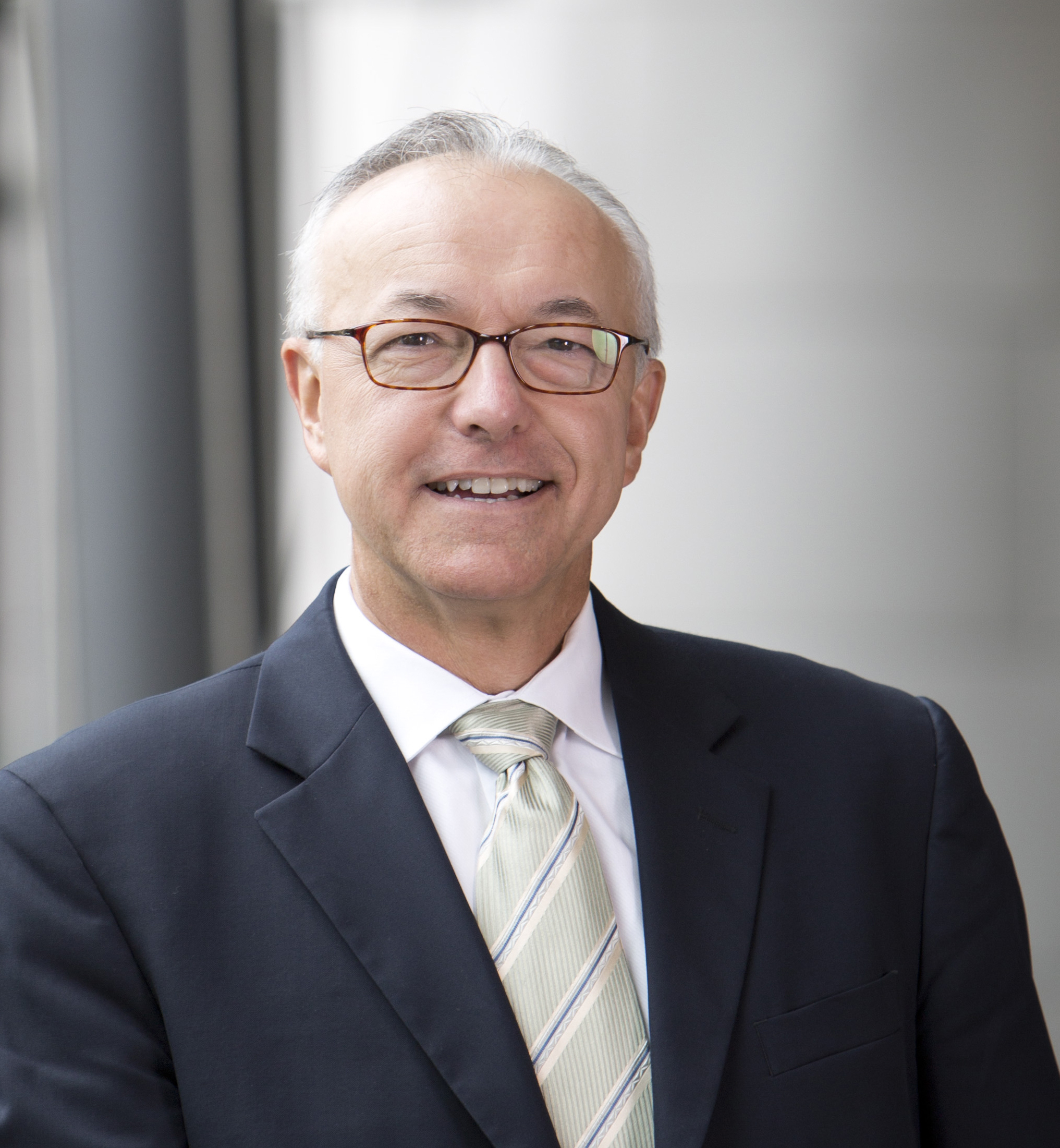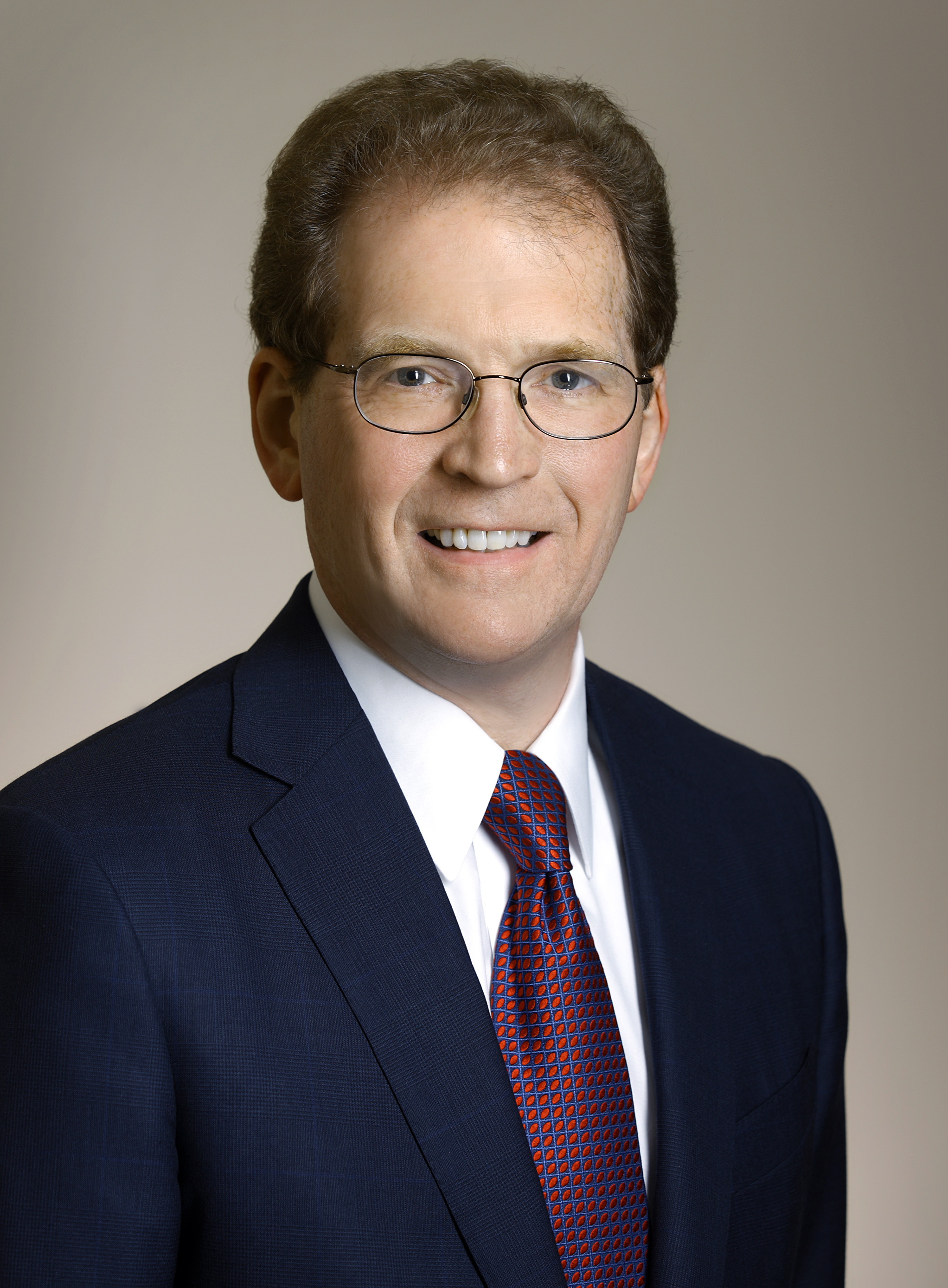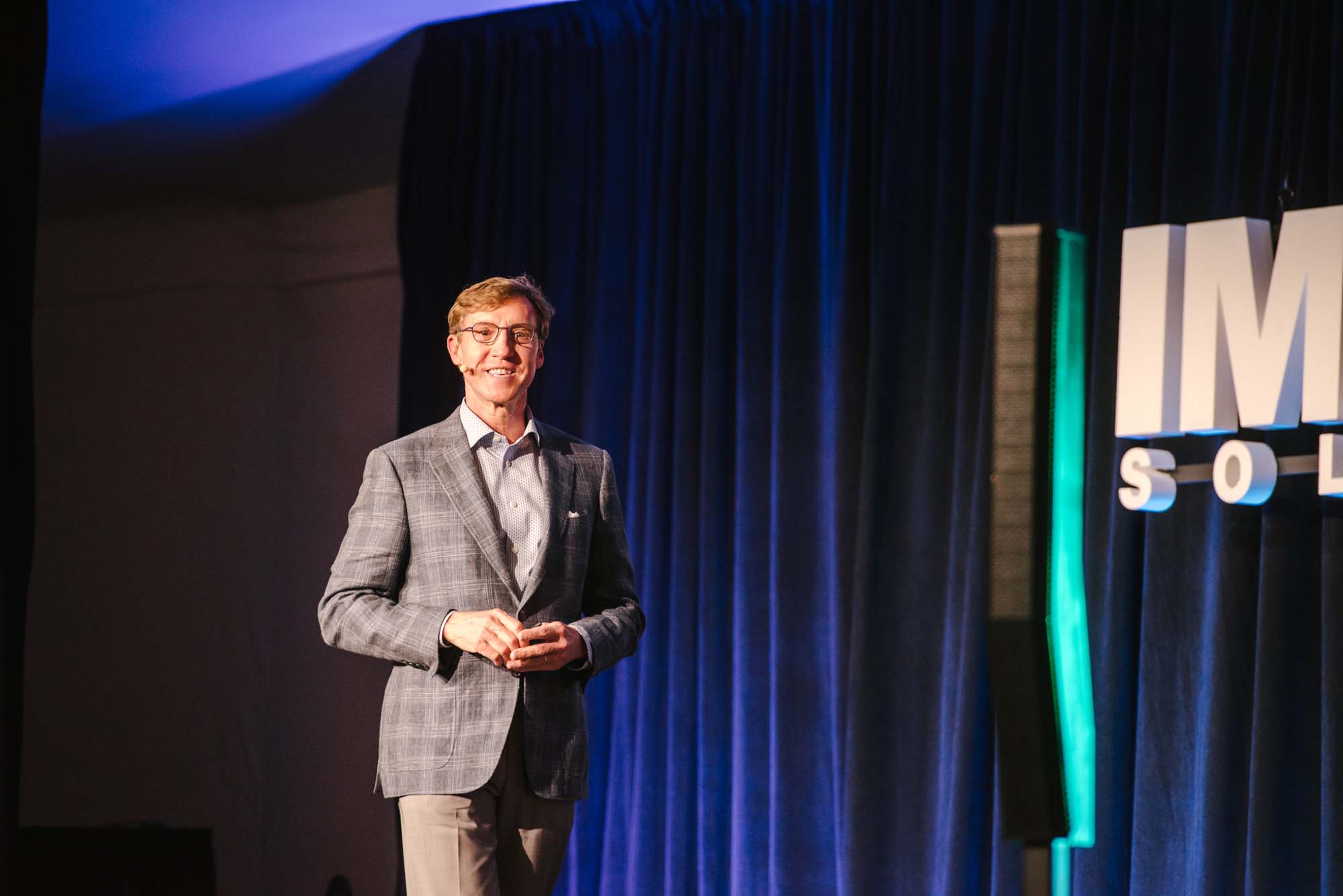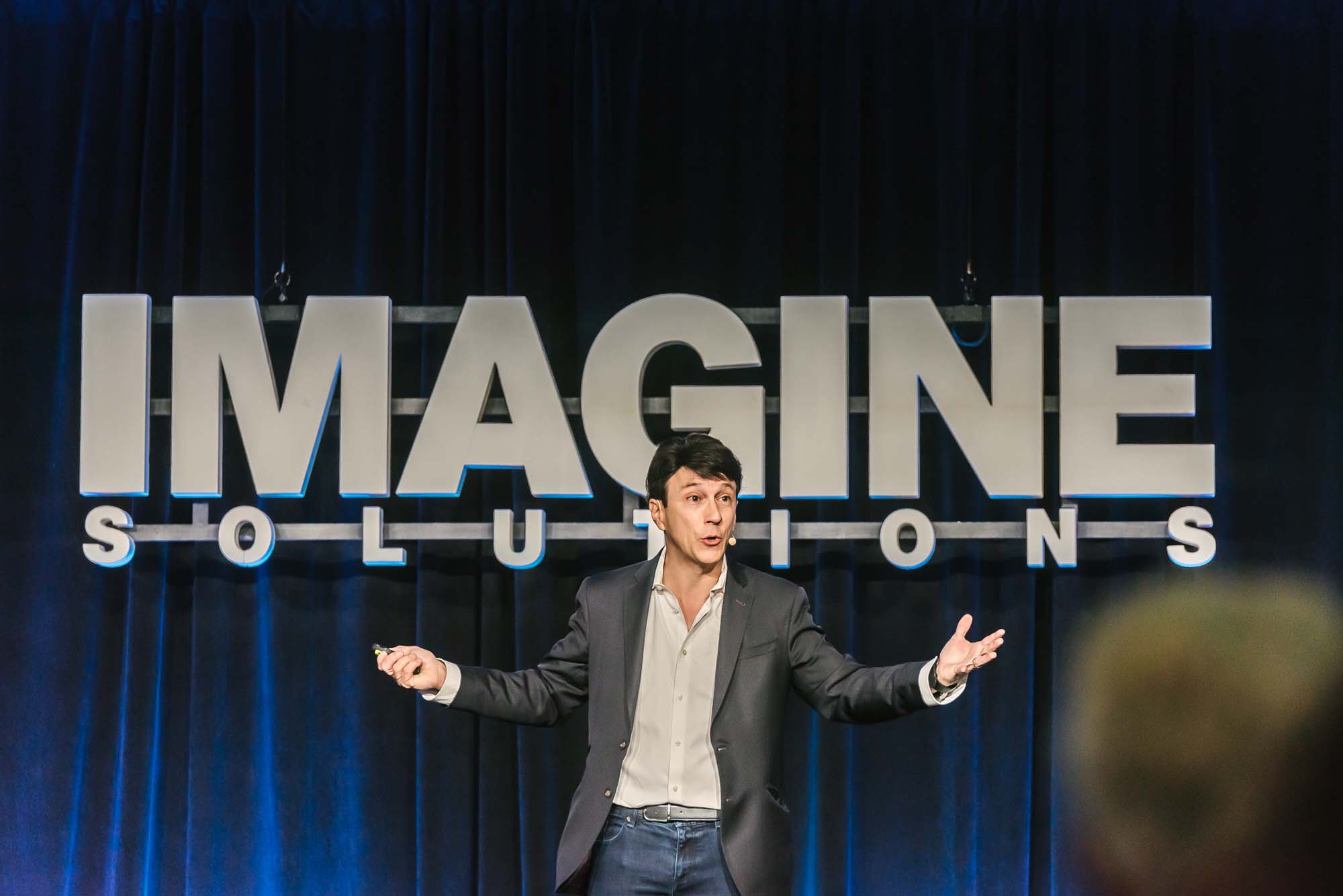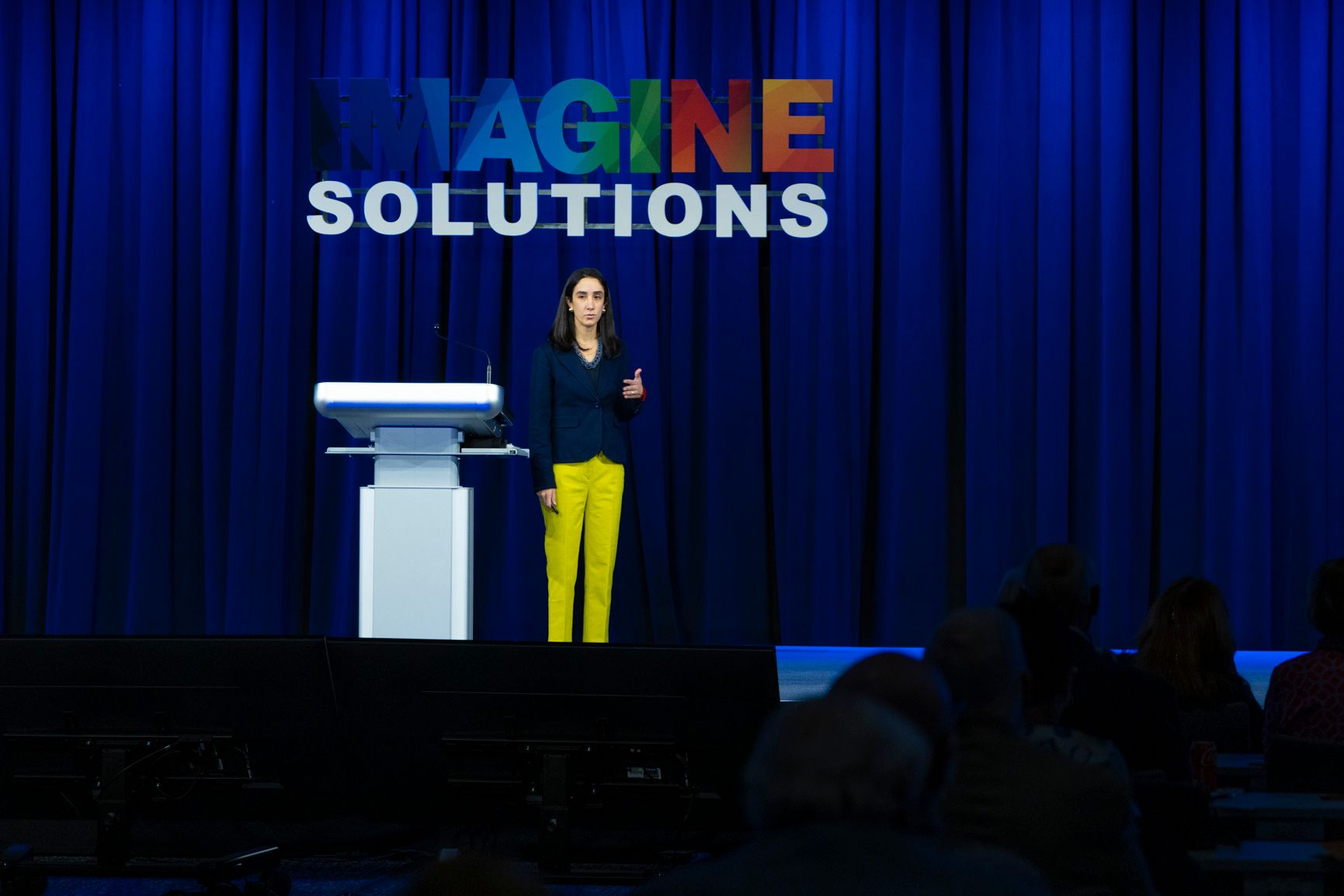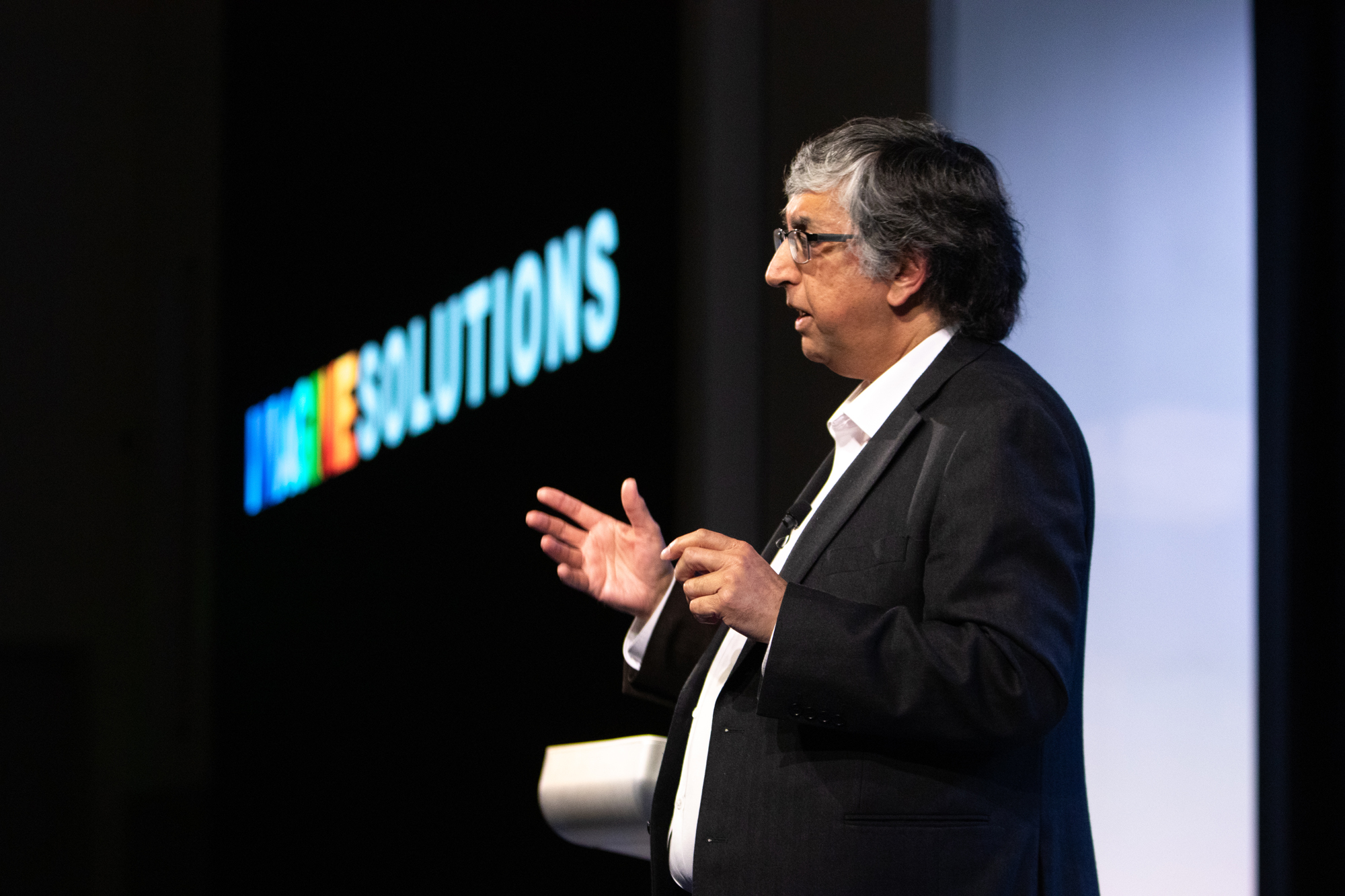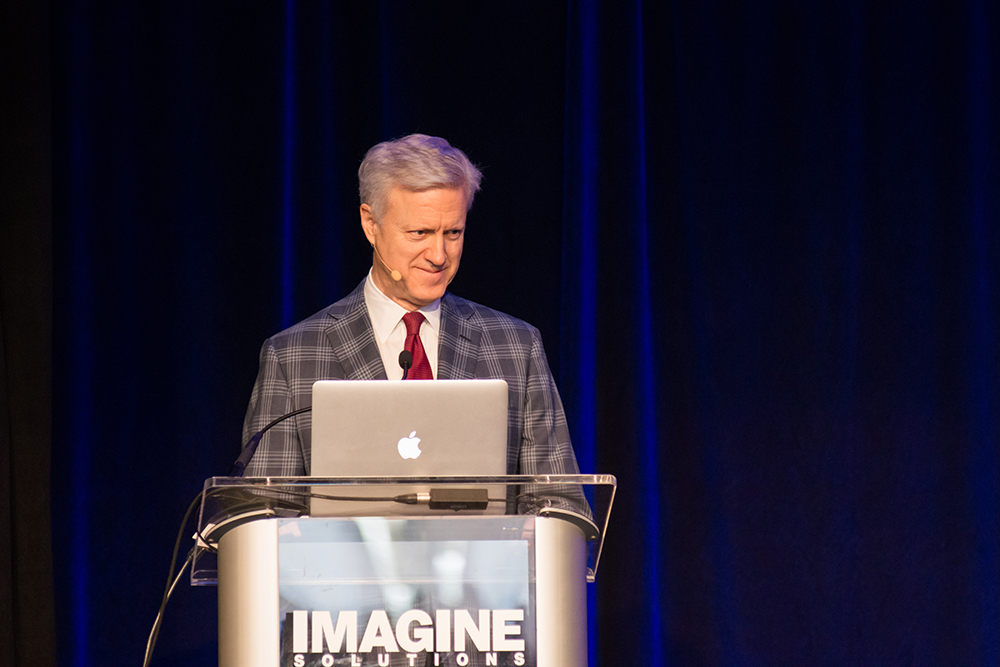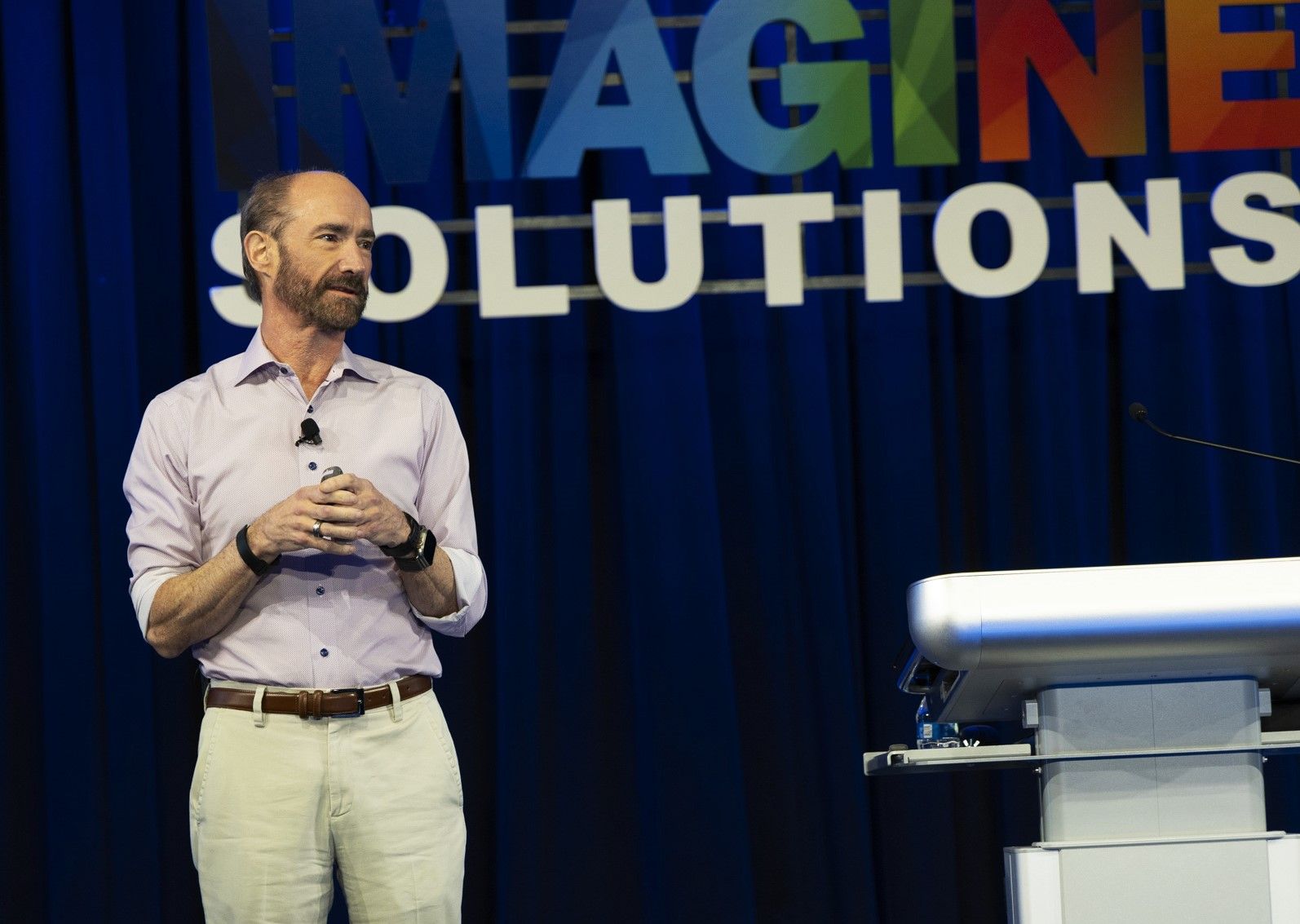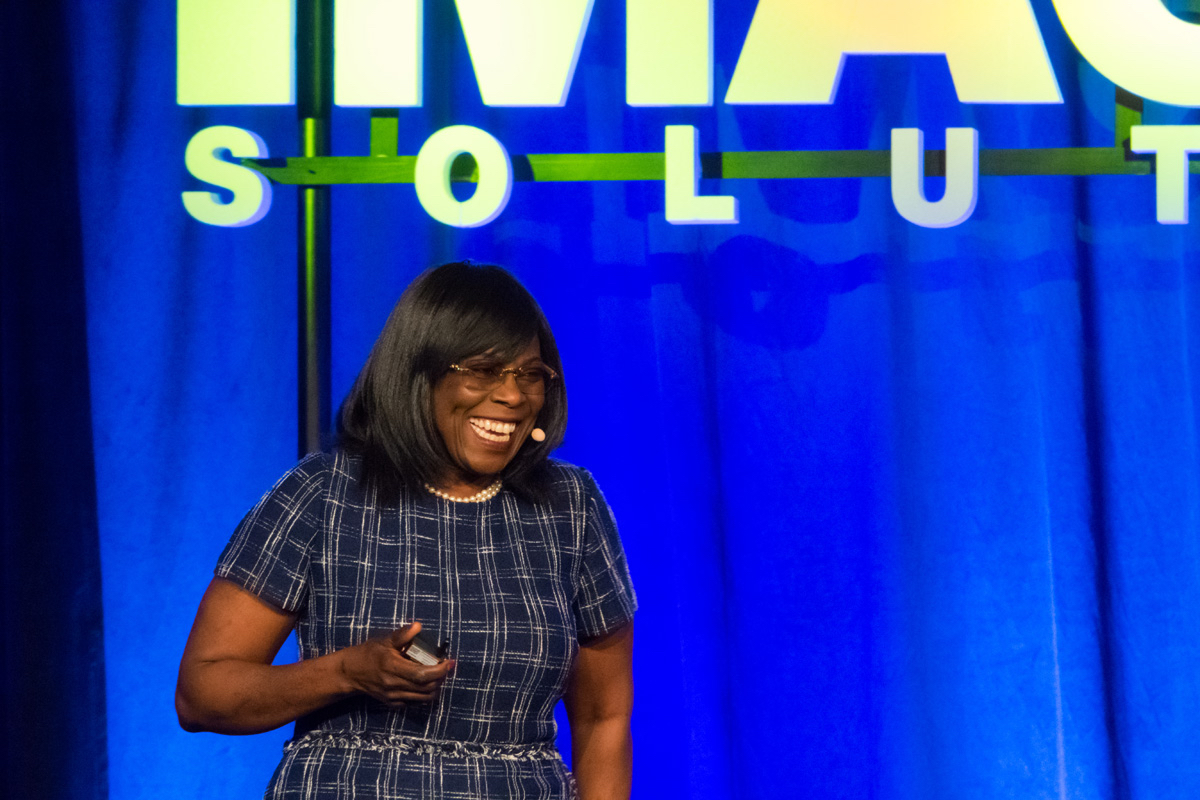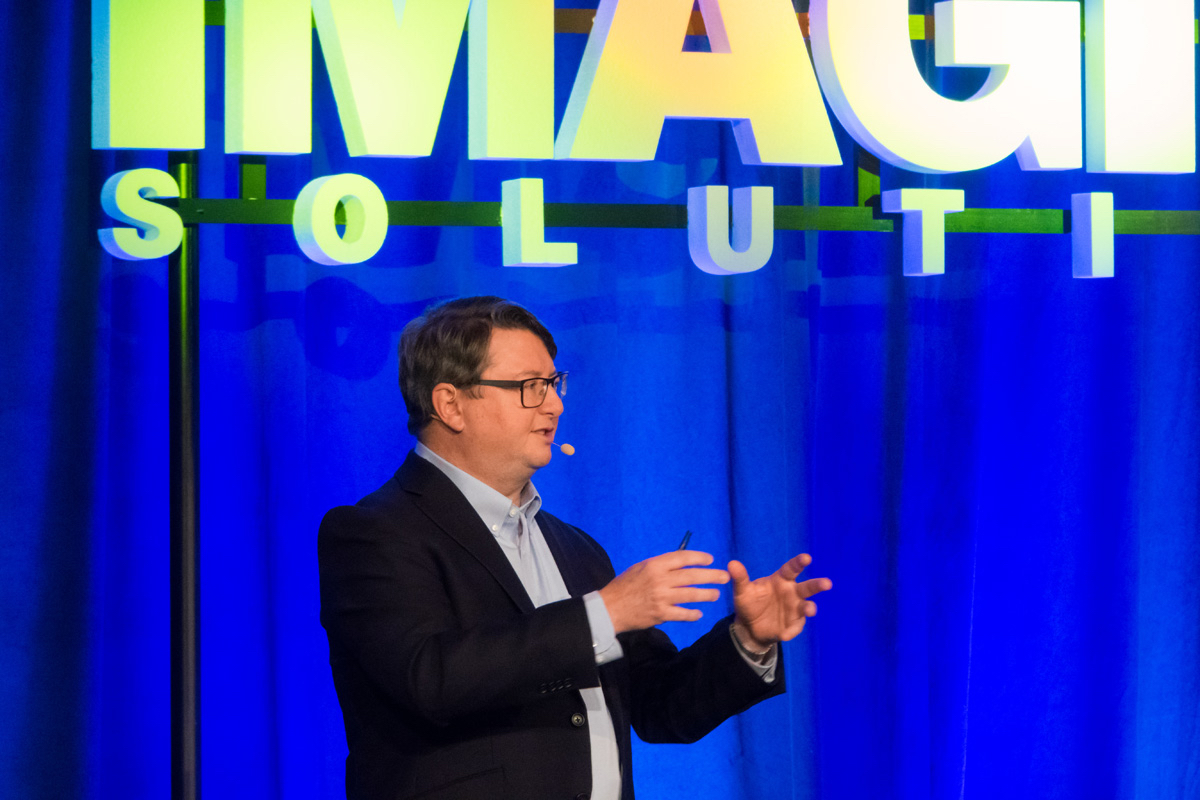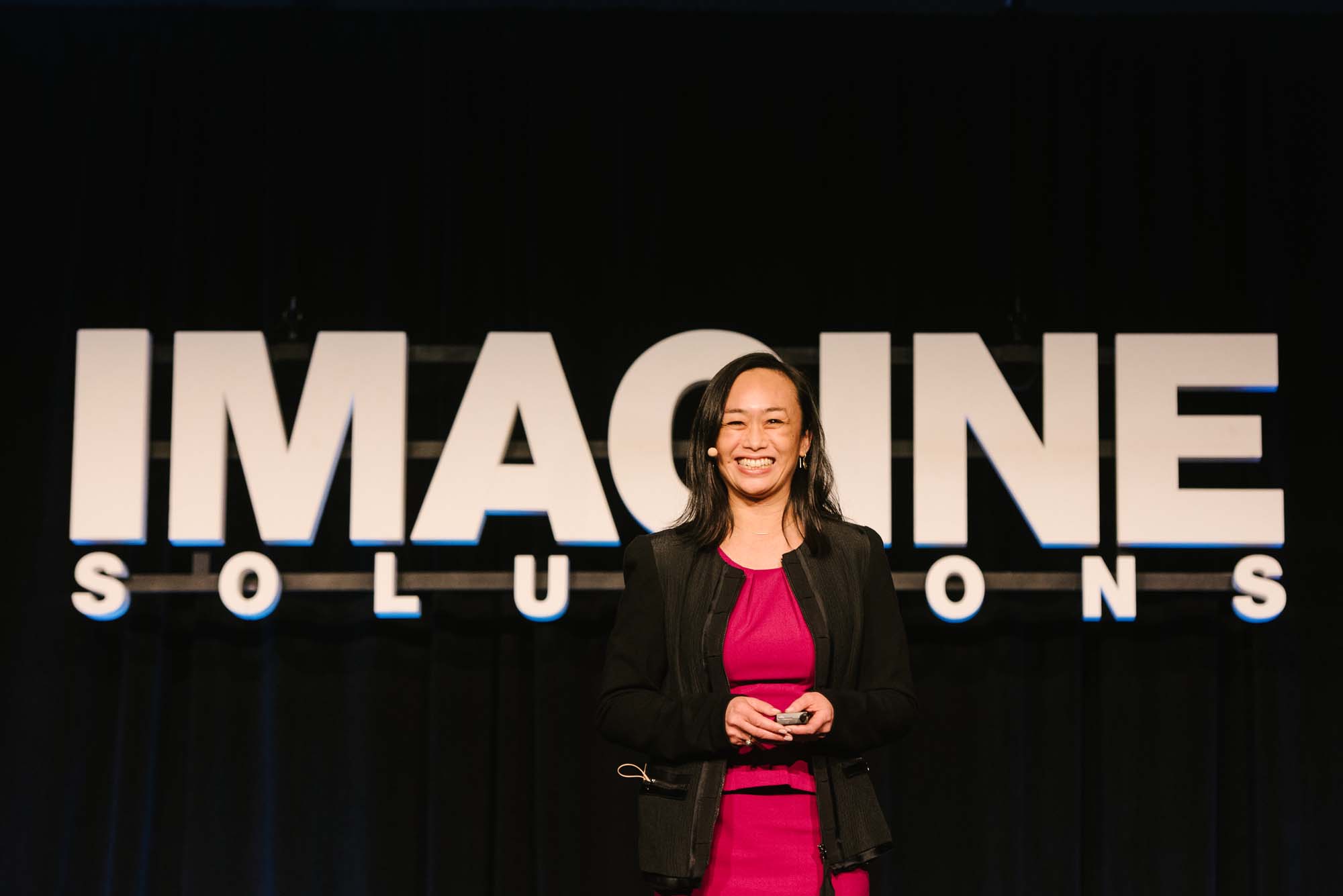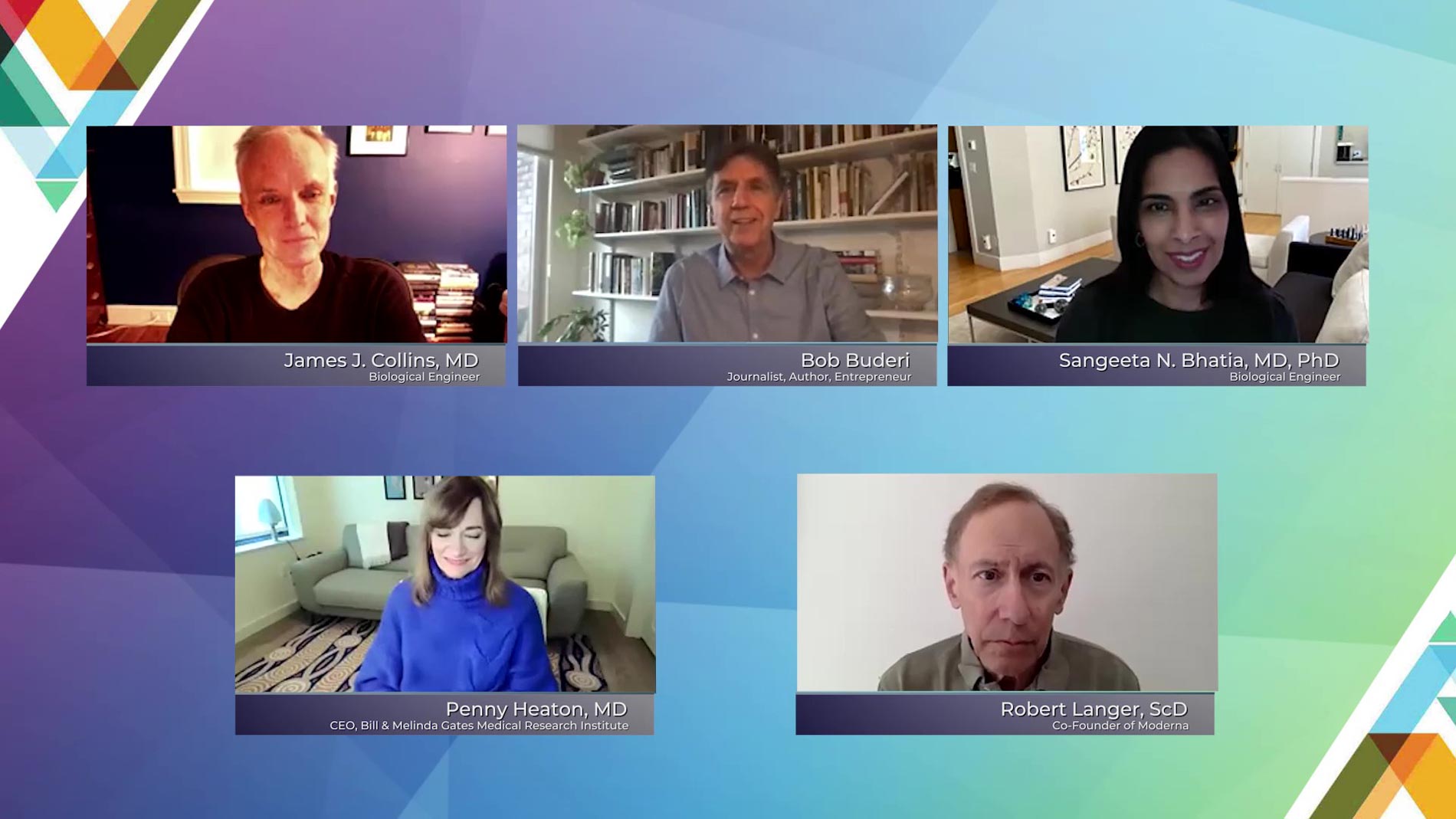The Future of the Physician and Modern Medicine
A revolutionary gathering in and of itself, this conversation joined Dr. Jon LaPook, Chief Medical Correspondent for CBS News and a professor of medicine at NYU, as the moderator of a discussion about the future of the physician and modern medicine, among the deans of three top medical schools. Dr. Paul Rothman of Johns Hopkins, Dr. Lloyd MInor of Stanford, and Dr. George Daley of Harvard spoke at length about the evolving picture of healthcare, including the good, some bad, and the lingering unknown. Topics covered include technology, aging, genomics, precision medicine, advancing treatment modalities, and many more.
00.00
what we're gonna have now is something that I don't know has ever happened before in one place at the same time and that is to welcome to the stage the deans of the three preeminent medical schools in the United States Harvard Johns Hopkins and Stanford and they will be interviewed today by the chief medical correspondent of CBS News dr. Jon LaPook come on out guys and this is Jon LaPook of CBS everybody come him Paul Rothman is the Dean of the medical faculty and vice president for medicine at Johns Hopkins University he is the CEO of Johns Hopkins Medicine dr. George Daley is the Dean of faculty and medicine and the Caroline shields Walker professor of medicine and professor of biological chemistry and molecular pharmacology at Harvard dr. Daley welcome and lloyd miner the Carl and Elizabeth Naaman Dean of Stanford University's School of Medicine welcome to all of you the topic today is the future of the physician and how medical care will be delivered and
01.00
by whom and who will pay for it gentlemen the stage is yours John take it away were you gonna first of all thank you everybody for for coming this is an amazing looking crowd and I guess the the tiburon drive problem is an example of the need for autonomous cars what we're gonna do is we're gonna keep medical correspondent for CBS News and I'm also professor of medicine at NYU Langone so I do both internal medicine and Gi and then I I do 60 minutes in the CBS Sunday morning in the evening news and CBS this morning I've between the three people here I have known I have known them a total of 35 years which is which is pretty cool I know Paul for 35 years and I just met Jordan Lloyd there's a trick math what we decided to do is have each one of them sort of go give you a little
02.00
amuse-bouche about what they're thinking and and and sort of get things started so I hope your bouche is amused and we'll get we'll get going too Paul so thank you John first of all wanted to thank everyone for coming out here and listening to us today you know there's an adage among medical school deans that our jobs are like cemetery workers we have a lot of people under us but no one's listening so we really appreciate you all coming here today and listening to us the question is where's medicine going and what is it all over the physician and how we as Dean's and medical schools think about training the next generation of physicians and I think what you're gonna hear today is that same revolution we heard this morning about how technology's affecting everything including autonomous cars and driving that same disruptive innovation is going to occur and is occurring today in medicine you're gonna hear about how artificial intelligence we heard a little bit this morning and machine
03.01
learning how the devices that we wear on our wrists are gonna be important in measuring what we do every day and our patience and measuring their blood pressure and their heart rate in their blood sugar and we're gonna hear all that today so if you think about that technology what is the role of the physician in that and I would argue that the physician is going to be the interface between technology and the patient that we're gonna have a lot of data coming either through your electronic medical record we're gonna have clinical pathways on your electronic record which is gonna say this patient should receive this treatment or that treatment you're gonna have the patient walking in with saying well look my heart rate was 85 for the next for the last week what should i do or 105 or 135 and the physician is the ones can have take all that information and make it salient for that patient it's that interface between what technology is gonna tell us should occur
04.00
to the patient and what the patient really needs so if you think about that we have to really think of that physician being that human face for how we're gonna practice medicine in the future together and George well I first want to thank Randy for bringing us all together it's a really exciting conference I got to meet a number of very interesting people and it's just absolutely terrific to actually be on the stage here my two outstanding colleagues and to then meet John the future physician you know that I always start with thinking about where I used to be it was 25 years ago and I finished my training in hematology and oncology if I saw a patient with lung cancer or lymphoma there were relatively few options that I had to offer now today the oncologist is subject to thousands of different papers
05.01
there's hundreds of different trials and the physician has to be able to integrate all of that information because somewhere in that is a better outcome for their patient so the physician of today is going to be very different even from the physician of tomorrow so there are three trends that I think will be themes that will come out as we talk one is the rise of genomics and in fact that's gonna facilitate a lot of precision medicine if you go back to 2000 when the rough draft of the human genome surfaced it cost three billion dollars today we can sequence genomes for under a thousand and the hundred dollar genome is on the horizon so that means that in the future virtually everyone is going to have their genome sequenced then there's this as Paul alluded to there's this
06.00
phenomenal tsunami of information I mean I would I would venture to guess that like us many of you are wearing sensors of some sort and that's providing an enormous amount of data that your physician is going to have to integrate and then something I think if theme that will happen upon which is a huge huge emerging issue for the physician of today and will become only even more important in the future is the aging of the population currently there's about 43 million individuals in the United States were over 65 that slated to grow to a hundred and eight million by 2050 and that increases the equivalent of adding three Florida's of senior citizens to the population think of what that's gonna do to housing prices in Naples the fact is that we as
07.00
medical school deans are trying to equip the the young physicians that we're training today to deliver outstanding care to all of you but are also thinking about where they're gonna be ten twenty years into the future I look forward to talking about that right and John thank you so much for moderating and it's a great privilege and honor to be here with George and with Paul and thank you this amazing audience to come out today to listen to some exciting presentations and to cast a vision for what's possible in the future you know all of us leaders of academic medical centers our organizations have traditionally focused on treating the sickest of the sick we are known as tertiary cordon Airy care institutions we oftentimes get referrals of patients when things haven't worked well in communities and that will always
08.00
be an important role for academic medical centers an important role for us as we educate the physicians of the future but the unique opportunity today and it truly is unique is to look upstream and to really make real the vision of health and precision health and to predict prevent and cure disease but really in that order with a lot more emphasis on prediction and prevention than we've been able to do in the past because we haven't necessarily in the past had the scientific tools and we haven't had the areas of related disciplines to bring in that we need to have to be effective at prediction prevention you know there's a revolution going on today in early stage Diagnostics for cancer for other diseases and I think within a fairly short order we'll see a lot better diagnostics available for all of us and
09.00
increasingly we'll be able to as both Paul and George have mentioned we'll be able to monitor we already are will be able even more in the future to monitor health on an ongoing basis you know each of us when we fly the jet engines on those and the planes were flying on are being monitored hundreds of times a minute and routine maintenance on those engines is determined based upon data coming in from the monitoring now that typically occurs without awareness of the pilots or that's not necessarily even with awareness of people on the ground but if there is a problem someone's immediately notified shouldn't we be able to do the same thing with regard to our health and monitoring our health and with this information we'll have we'll also be able to design preventative strategies that are tailored to the needs of each of us but to make this vision a reality we're also going to need to address the social behavioral and environmental determinants of health much more than
10.02
we've done in the past there's never been a more exciting time I think for us as leaders in medicine certainly the people we attract to our schools today are amazing I think we oftentimes talk when we get together that many of us probably wouldn't get into Medical School today given the standards and that we hold our students to today but you can be really encouraged about the future of the physician profession and about the future of health and health care Thanks I think I'd get in because I know the deans of three of the top medical in the country otherwise I wouldn't get in I'm curious how many clinicians are in the audience show of hands just to get it right a good a good number and of course everybody here is a potential patient there is there is so many different places we could go with this we could be here for for eight hours talking about
11.02
this and so my job is going to be to try to narrow it down and then shift quickly to two try to cover enough areas that are of interest but and not go down too many rabbit holes but I think you're hearing that it's an extremely exciting time and it's exciting because there's stuff that's here that many of you may not know about and then there's cool stuff that's coming down the road that we also want to talk about as we're talking about genomics and doing people's genomes there's something called a precision medical medicine project that Francis Collins and the NIH are doing where basically they want to get a million people and get their genetic makeup mapped and then follow them and see what happens over 10 20 30 years over a lifetime how do we know when somebody comes I'm an internist and gastroenterologist people are now coming in with their three and me results and they go here you go doc what do I do with that nobody knows really if you
12.01
know if it turns out that instead of having a 2.7 percent chance of having pancreatic cancer you have a 2.9 percent chance what am I supposed to do with that data so I want to start this off with where we are now if I'm putting my cells in your in your seats you want to know like now great it's great what's coming down the road but right now what should I know to start off with what should I know that's here that I might not know about that I should be thinking about and and why don't we just start with pot with charger yeah I mean I I talked about genome sequencing how many people have done the 23andme or ancestry.com see look at that but it's got to be a quarter at least a quarter of the audience how many have you had your genome sequenced okay the three of us have all had our complete genome sequence now what I learned was that I had a high probability of going bald and
13.00
becoming obese and I'm working on preventing one of those two we're still in discovery mode the fact is that the vast majority of the differences between us really predict a very small percentage of our risk and we're starting to learn learn how to combine the different effects of different individual gene variations into one sort of polygenic risk score so stay tuned because I think we will learn more about how genes and your particular lifestyle do contribute to your health issues in the future now what is actionable today in which all of you should know about our is the ability to sequence the DNA of tumors so if you are in fact diagnosed with a cancer and that will happen to probably at least a third of us it is really standard of
14.01
care at major medical centers like Hopkins or Harvard or Stanford to have a panel to detect the 450 so actionable gene mutations that actually predict what your doctor should do for your therapy and in about 40% of the cases that gene signature is going to lead to a better outcome for you so that's here today and the hope in the future is that we're going to get even more information to make genomics more more predictive let's stay on cancer for a second because you're making me think about immunotherapy which is as a theme I think everybody if you haven't heard about it yet needs to know about it we've it's we've wondered for years why is it you have a cancer that's developed it's a foreign protein foreign cells why is it that your immune system doesn't just get rid of it like it gets rid of a viral infection or bacterial infection
15.00
and it's complicated but one of the reasons is that the cancer has an ability to cloak itself like a cloak of invisibility and Harry Potter or Star Trek right and a lot of the immunotherapy that's out here now which is I think an exploding very exciting field is to try to strip that cloak and somehow give your immune system beefed up your immune system fiddle with the immune system to try to make it so that you can actually use your immune system co-opted to kill the cancer the the analogy would be in some of the some of the approach is you take the cancer out of the body you take the specific mutations that George was talking about and you just like you would give the sent to a bloodhound right you give the scent of that the proteins the specific receptors to some immune cells that you're fiddling with and then you grow them up so instead of having a few of those immune cells there may be a billion of them put them back into the person and
16.01
then it goes out and finds the cancer and kills it that's kind of the the the overall approach but I'd love to hear what you guys are doing to your institutions because this is as exciting as it gets so I think I'll begin but I will begin with a disclaimer I am an on the board of Merkin company and Merck has one of the major the best selling the drug in this space so I have that disclaimer so I don't get into trouble with a conflict issue that being said it's amazing the the immuno Oncology agents and there are actually four different companies with them on the market now or changing certain cancers in a way that we've the four of us have never seen metastatic lung cancer metastatic melanoma there are certain cancers it's respond very well to them and those I think are really changing the way we treat those cancers the next step is to understand why all cancers don't respond to these and I think the next trials had coming along our
17.00
combinations of chemo normal chemotherapeutic agents or radiation therapy with these immune checkpoint inhibitors and after that as John said there are things and I'll let someone else talk about core T cells maybe Lord well but there are actually vaccines coming along to see if you can again stimulate the immune system to attack tumors so I think all our institutions were three of the ladies in this space but to John's point is cancer treatment now compared to five years ago is day and night for many many different types of cancer I heartily agree I think one example we can all relate to is that former President Jimmy Carter announced to the public about almost four years ago that he had stage four melanoma with metastases to the brain and to the liver and essentially in a very poignant press conference said that he was he was a piece of the world and
18.02
today at least from what we read and his statements he's alive and doing well four years later being treated with one of these immune checkpoint inhibitors they just did not see that before these approaches in cancer immunotherapy now unfortunately you know they don't work in every patient they only work across the board maybe in a third of patients and it's very important to know whether or not the tumor has specific receptors for an immune checkpoint inhibitor the other approach as John mentioned is to rev up or engineer on each of us in each of us our immune system so that our immune system cells the so called t-cells go out and find the cancer cells and kill them cancer is a very clever disease and it disguises itself from the immune system and has several different mechanisms cancer cells have several
19.00
different mechanisms that block the immune system prevent the immune system from detecting the cancer cells being a foreign cell and essentially as John was describing what's done in car t-cell work is to take cells from each individual and engineer insert genes into those cells that cause them to find the cancer cells now it's been most effective in blood-borne malignancies and hasn't been very effective to date in solid tumors because of one of the problem one of the problems being this phenomenon of t-cell exhaustion in other words the engineered T cells work fine for 24 36 hours and then for reasons we're still learning about they're no longer as effective so there's a lot of work scientifically going on today to prevent t-cell exhaustion and then hopefully make car T cell technologies effective solid tumors these fields are moving
20.00
more rapidly than any other fields I've seen in in my time in medicine not just in cancer but in any other fields that are directly patient facing that I've seen the time from when an experiment and a study is done in a basic research done in a basic research laboratory to the time that it gets in humans and clinical trials is shorter than in any other area of Medicine that I've seen so it's it's extremely encouraging in terms of the future and maybe we're in the last of a generation of doctors who are going to be blown away by this right so I interviewed a young girl with leukemia who everything failed she's cured I interviewed a woman Judith Perkins in Florida she had metastatic breast cancer she it for what she's had it it's gone for several years now Steve Rosenberg did a trial with her with the tumor infiltrating lymphocytes so maybe the neck is gonna raise I mean it's
21.00
important to realize that it's still a relatively small number of tumors that have had these dramatic responses but you know it was really the late 1800s when the first notions that the immune system could fight cancer were put forth and it's taken you know over a hundred years for us to realize this potential I mean any field can have a bad century you know it's just and we you know there's there's a lot more to be done but some of the the real breakthroughs in cancer care is the result of decades of investments in fundamental research this is something that we have you know we must give tremendous credit to the National Institutes of Health that invested built the foundational knowledge on which now we have been able to translate many of these new therapies what's the future going to bring I mean
22.02
the same kinds of investments need to be made so that we can get deeper understandings of things like neuropsychiatric disease Alzheimer's it's afrien eeeh and the hope is in the decades to come that we'll have the same kinds of targeted therapies for those diseases and I wrote say Lloyd made important time that these therapies work on only certain patients in George's right and you need to be tested for some of the markers the other thing that we haven't talked about is the new types of screens for cancer that I'm gong it's been less than a decade that we've done high-resolution CT scans screening for smokers with lung cancer but there's a new generation of types of testing using this genetic information to screen for cancers that is still experimental but I'd love to hit my colleagues but I think will be important in the future of people because it and something if you get the cancer earlier you are more likely to be able to treat it and I know I know we're doing some of it and we have faculty with company starting it
23.00
and and I think sure I think early stage diagnostics for cancer there's a scientific revolution going on it's a fairly quiet revolution there still is an appropriately high bar by the US FDA to get a new diagnostic approved because of wanting to make sure that it that it truly does have value in terms of prediction accurate prediction but the science is is really solid and it is advancing quite rapidly so we're seeing companies like Grail for example that is as Paul mentioned an early stage Diagnostics company in in in cancer and I think you'll you'll see more companies like that and and successes of new screening methodologies also our ability to image tumors and to label them with molecular markers is changing so that rather than just doing a CT scan or an MRI we'll be able to locate smaller
24.02
tumors much more accurately than we can today because of advances I also want to return to a really really important point that George made and that is the importance of fundamental discovery based research because that oftentimes we're not talking about that as much we should be but everything that we've been talking about in terms of advances in the and predicting preventing and curing disease everything we've been talk talking about has been enabled by fundamental discovery based research the National Institutes of Health plays a really important role but also increasingly philanthropy is playing an important role because the NIH and federal agencies are typically going to support research once it's under underway because understandably the government has a desire to have some evidence that the investment of taxpayer dollars is going to pay off in terms of results but often times the most
25.00
innovative research is the research that's going to fail and studies that are really innovative that are out of the traditional box of thinking are usually not going to fare very well with with standard federal mechanisms and philanthropy plays a really important role at helping to Kindle that research carried along to the point to where a compelling application can be written to the NIH or another federal agency I'm glad you go back to about things failing and about how what a slow a tough slog it is because actually where I was headed and I'm glad you jumped in George when I was talking about Judy Perkins and the metastatic breast cancer and the cure was at the same time you have to realize that we're in this this odd exciting area but where most of these treatments for solid tumors don't work and the vast majority of the cancers are these solid tumors so we're in a frustrating area because you may see on TV we did that story of Judy Perkins we did the story of the little girl with leukemia so if somebody out
26.00
here has a loved one or the or if they themselves are battling cancer they may think Oh where's my cure and I think it brings up where I wanted to sort of head with the next thing which is dr. Google so yes where do you get your information you know you hear you suddenly get a diagnosis whatever it is and you want to find out about it so how do you do that in 2019 in a way that makes sense what's the role of the doctor in that and I want to throw into that because we're talking about all these incredible computerized things and artificial intelligence there's a great cartoon that I love which is the patient's over here and the computers there and I'm looking at the doctor is looking at the computer says I don't like the look of your cholesterol meanwhile the patients here has eight arrows through them there's blood spurting look at the patient you know so
27.01
what is the doctors role or the clinicians role as we really should be saying because it's not just physicians yeah in helping the patient out there figure out what the heck to do I'll tell you I work my my own researches at the interface of cancer biology and stem cell biology and I think the point is despite the really dramatic improvements in cancer care there are still many many conditions that we can't treat and that's when you extend that to the variety of other disorders autoimmune disorders multiple sclerosis and Alzheimer's and the like patients come to us desperate for some kind of an answer and I think one of the challenges of modern medicine is to balance the real reality of what we can offer which is profound with the hope for the future and we talked a lot about research because
28.00
research really is hope for the future but its enormous ly frustrating because dr. Google will give the false sense of hope to patients because if you just type in stem cell therapies into the Google search engine you will get dozens of websites of clinics that are purporting to offer you stem-cell cures for everything from multiple sclerosis to Alzheimer's to your arthritis and the reality is that whereas there's much hope from stem cell science those cures are not here today and there's a tremendous risk of misinformation and the stem cell in cancer community has been working for years to try to counteract that but it's kind of a whack-a-mole problem you know that game where the mole picks up and you hit it on the head and then it pops up somewhere else that's what we're fighting in the rise of sort of
29.00
misinformation and fake news the other hand there's a lot of good information on the web so in fact I'm sure most of you go to Hopkins Medicine Talk org we need medical information like my family does and it's a great website I think most of em are on the Harvard Medical Stanford but but there's a lot of who though is blocking you I think they're probably blocking our sites and sending them to Stanford but it is the age of consumerism where patients have more information I actually think although there's misinformation there's a lot of good information that patients now have that they didn't in the past and how do they filter the curator what's right and the filter is something we want and so actually as everybody talked about the physician of the future and what we train physicians to do is to be able to take that information because the patient's walk in in offices now with their Google searches for this I think I have this disease read it that's what I
30.01
have and I think that's great at some level I think people need to be in power to take care of their own health and but the physician and the other purveyor care providers be that nurse practitioners or physician assistants or others our role is now to work with a patient to understand that information and what is actually salient for them and what is actually not selling for their care so it's a mix packet but I actually think it's good I think patients being more informed about diseases is a good thing in general now let me let me add a perspective on that also so in 1998 I described an inner ear disorder it's a disorder caused by bone missing from covering one of the balance scales and in the in the inner ear it's not incredibly common but it's not incredibly rare so still to this day the most common way a diagnosis is made is that people do a search on their symptoms there's several very distinctive symptoms and fines the people of this disorder have like loud noises make them dizzy or they
31.02
hear their eyes move you search on any of those phrases and Google or whatever search engine will point you to websites that describe this disorder now the point I want to make is that when a physician or another healthcare provider types in those same keywords into the chief complaint line of one of the standard electronic medical record systems used today he or she gets no support in making the diagnosis electronic health records today are far beyond far behind other aspects of information technology at really helping us as health care providers deliver the very best care and so that's a real that needs to be a big area of focus for all of us moving forward is how we get the electronic data systems that we as healthcare providers depend upon and that all of us as patients should be able to look to for more reliable and useful sources of information to bring
32.01
those data repositories into this century in terms of what the information age offers and there's a lot of work to be done to get there I just want to emphasize that because it's actually back in the 80s I did the first fellowship and medical computing at Columbia I wrote software that runs the doctor's office because there wasn't anything out there and I ended up selling it to WebMD but I ran it for like 13 years and then promised Kate my wife that I would never do another company but in those years we were thinking about oh this is great we're getting information in and we'll be able to have what's called decision support where it's not just gonna be that I can do billing it's not just that I can finally read somebody else can read my note but actually it's helping me and we've actually gone amazingly we've done amazingly poorly in that if you put in penicillin and it says allergies penicillin yes it will come up with a warning but if it's something more sophisticated that involves looking at the person's family history that you've put in looking at their the blood
33.02
chemistry's that are in there looking at their medicines and then putting them all together and by the way relying on a database of the millions of articles that are coming out all the times that somehow putting that in the back there and with artificial intelligence and the deep learning that you heard the neural networks somehow coming it all up and not shocking me when I you know in the middle of me typing but coming up with a little this is interesting would you like to be taken to the library and then off you go and then you come and so that's something that that's totally missing right now I want to return to the section that I want to call what's baloney so what is it that's out there right now you mentioned stem cells bogus stem cells and certainly people people have gone to stem cell clinics where then there's been some undercover investigations the stem cells are dead and they may go out of the country start with Paul what's Bologna out there that they that they should be aware of so
34.01
I'll have our controversial one yeah I bet I know you care passionately about there is no evidence today that vaccinating your child would cause autism there is absolutely no evidence for that and we're starting to see around the world Beezus outbreaks because people because of a bogus study that demonstrated that so I just say there is no evidence that vaccines cause autism bottom line right you're here and that's a it that is a very complicated subject to to broach but the article that he's talking about was 1998 and it was published in Lancet and it's been completely found to be bogus and it was withdrawn and the the person who was the lead author lost his medical license and yet it took 12 years for that to be exposed more than 25 major studies over
35.03
the last 20 years showing that really no evidence of a link but it took 12 years before that sort of came to light that it was fraud and in that time the anti-vaccine movement took off and it's still it's it's still going and we're seeing the outbreaks in Washington in the north northwest was a few cases of measles seven or eight in in Texas and then we're seeing some overseas of course so that's something that it's a whole other conference but it is something that that I think everybody out there who doesn't know the history of it who just hears somehow that that vaccines cause autism I think that that really has been debunked by and at some point you you don't have a false equivalency where you say well on the one hand some people think the world is round and other people think it's flat it's it's really a considered established science right now and if I were somebody there's a woman there's a professor named Peter Hotez who wrote a
36.00
book called vaccines didn't cause Rachel's autism his daughter has autism and I it's infuriating to think that twenty years were lost where they could have been instead of those 25 studies done stuff to say early diagnosis early intervention or by the way find out what does cause it a combination of genetics something in the environment so anyway just I think we all feel strongly about this because a lot of people don't remember 20 years ago when that article came up with it it all start it started out with an article that's been withdrawn and considered to be bogus so George the claim that gets my blood boiling the most is the use of stem cells to treat arthritis and joint conditions and it's often a ill-defined slurry that's extracted from a liposuction that may contain fibroblasts that aren't really stem cells and often it gets mixed with something called platelet-rich plasma and it gets
37.01
injected into various joints and all and there's an awful lot of anecdotal evidence and there is a rising industry of individuals who will sell you this it's not covered by any insurance because there really is no compelling medical consensus through randomized blinded controlled trials that this really works and yet it is at the forefront of this sort of remarkable cottage industry of stem cell therapies if it works I I challenge the practitioners to prove it so that we can all benefit and then the insurance payers will be obliged to reimburse for it but stem-cell snake oil is alive and well on the internet and just to be clear so we don't confuse because you did mention PRP plasma rich platelets you're talking that's separate
38.00
stem cells plus PRP or PRP it's usually it's usually a mix of the two PRP is its own right so that's that's not often on this labeled and marketed as stem cell therapy it has nothing to do with stem cells so again are you talking about because yeah I'm sure people here have had PRP are you talking about PRP are you talking about stem cells plus PRP I could talk about PRP further that's about what are good people know PRP also there have probably been 30 or 40 attempts at randomized for some of them being randomized the quality of those studies are fairly poor it's a very ill-defined concoction everybody's platelets are different everybody's levels are different it's a very very hard on intervention to standardize and so it's subject to an awful lot of misinformation I think I would just generalize the two examples that that that both Paul and George
39.01
brought up are the two that I would certainly think of I think in a more general sense anything that's purported to be effective that hasn't actually been studied in a rigorous and controlled manner I think we should be skeptical about that it doesn't mean that it should be rejected out of hand but each of each of you should be asking before you're undergoing a procedure or you're considering a particular medical treatment you should be asking and getting informed about the evidence surrounding that the efficacy or lack thereof the complications of the treatment that's being recommended to you and your healthcare professional should be able to engage in a dialogue with you about the evidence and I think all of in the medical profession feel that we should be holding ourselves to these standards and so making sure that you're getting the information you deserve before you undergo a procedure or go on
40.02
a particular medication is really really important also on the the vaccination point it concerned me last week I read a report of a person who was interviewed in one of the areas where a measles epidemic is occurring and this person said that well they remembered when they were a child you know the whole family got measles and it you know they all they got over it just fine and it brought the family together during the process of getting over you know the measles that ran through all the children but you know my field is is ear nose and throat medicine and surgery and measles rubella all of these viral illnesses of childhood have an incidence of severe to profound hearing loss among other long-term sequelae that can occur from the infections so it's yes in many children it's a benign self-limited infection but in far too many it's not
41.00
and it's really unconscionable that the prevention that we have a simple vaccination now there are counties County in California Marin County were one in five children one of the wealthiest counties in the United States one in five children under the age of three has not been adequately vaccinated I mean that's a recipe for long-term you know health issues that are going to occur in association with epidemics that we you know know we're gonna pop up so just a little statistics to add to that you know mortality from measles I just looked that it's something like one in five hundred to one and a thousand last year 185 kids got the flu I'm sorry last one hundred eighty-five kids died from the flu and eighty percent were not immunized so yes it may be rare but if it happens to your kid your child and there's a there's a one other point
42.00
before we move on which is when you make the decision not to vaccinate not not to vaccinate when you make a decision not to vaccinate your own child you may say that's parental rights and I'm and I'm rolling the dice for my child but you're also rolling the dice for other people's children because you can't get the vaccine for measles mumps and rubella before twelve months you may have immunosuppression from aids from cancer you may not be able to have some medical condition where you're susceptible to it so you're not just rolling the dice for your own child you're rolling your dice for other people and you're sort of taking advantage of what's called herd immunity which is if you get over a certain percentage I'd say over 90% of people get vaccinated then you know you could sort of be protected too so the final thing on this is that that we're barely old enough but people today I understand it because people don't they don't remember these outbreaks they don't remember polio they don't remember the terrifying it
43.01
was and now it's like well why do I need to be immunizations so aside from clean water there's been nothing other than immune is a nothing other than clean waters done more for health and immunization so you're here moving on to a tough subject but we need to do it which is the aging of America the caregiving problem Alzheimer's there's about five and a half million people by some estimates with Alzheimer's that that could double or triple by 2050 there's a couple of hundred billion dollars in law a year lost by caregivers in lost wages family friends who were taking care another couple of hundred billion dollars that Medicare is playing for Alzheimer's alone so we did a 60 minute piece that aired last year where I followed my cat Carol Daly he she had Alzheimer's I followed them over ten years and he's a tough Staten Island cop at the beginning he said I can handle this you know through better force I'm there by the
44.01
end the last time I interviewed him about a year ago he said I'm ready to I'm ready to take a gun to my head three months ago and he wasn't suicidal thank God he got out of it talking to his doctors and then fight he said I'm not gonna put her in a nursing home I'm not put nursing home and finally he had to do it and she's doing better and he's doing much better and this brings up a couple of issues one of which for him was that they never really had the kind of discussion they needed to have about end-of-life because we're tough where we have a tough time with that in America when they were both well when they both had you know all their cognitive abilities so that when she lost her ability to reason he couldn't ask her what you know is it okay to send you to a nursing home because by that time it was too late so one of the things I shouldn't this is now the journalists hat off the doctors hat on I do urge everybody to have that discussion as tough at MIT as it may be at a time when people can can can have it I mean the no time is better than now and decide you
45.01
know what let's talk about it you know and what would you like and are we prepared do we have the health care proxy do we have power of you know or our desires really spelled out as much as you can knowing of course you can always reconsider you can always renegotiate so I want to turn to we have no cure for Alzheimer's we've got an aging population we have all these other diseases the feel-good topic of the day but I think we need to address it so our just say and come back to the I think the point Lloyd and George made we really still we have no treatment for Alzheimer's and we fundamentally are not even sure we know what causes Alzheimer's and it is and and in fact that's true of many parts of neuroscience and brain diseases and I would argue strongly that what we really need to do invest in research because we are not near a cure there all the clinical trials what we thought might be
46.01
effective agents in the past five years of failed and so I actually think if you really want to an Alzheimer's in terms of an economic impact on this country it's going to be huge the if I think the country needs to invest in the basic fundamental research to understand the disease now because cures take long times therapies take a long time to develop and we need to really invest in the research to understand out Simas and other neuro to diseases before they overwhelmed the country's so I hate to say that because we're all at the age where we're thinking about losing some of our cognition and our memory but right now it's a time for this country to invest in understanding what causes Alzheimer's and therapies you know and that includes early diagnosis because we one of the things that you may or mean I know this got dislodged there one of the things you may or may not know is the discovery has been made that the pathologic changes in your brain that go along with
47.00
something like Alzheimer's they start 10 20 30 years before you have symptoms and so one of the thinking in some of the trials the things that get rid of amyloid which is that gooey substance that that interferes with with neurological function that we're not sure even it's the cause of it but that has to be there for the diagnosis there have been trials to try to get rid of that and it may be that we're taking it those drugs way too late it's like taking lipitor after your fourth heart attack and you're in heart failure it's just you needed to do it earlier so we do new we do need weights ways of making having earlier diagnosis and that means and I want to toss that to you George right now doctors aren't really we're kind of a little nihilistic we don't really want to know it's like we don't want to know a lot of us don't a lot of people don't want to ask about suicidal ideation you know we don't want to know because then we have to do something at it we don't want to know about early dementia so we have flip answers and you've heard some of them which is somebody comes in complaining of their memory and then the doctor says
48.01
tongue-in-cheek it's somewhat true but I it's not a great answer which is it's one thing if you can't find your car keys it's another thing if you find your car keys and you don't know what they do and that's getting at the issue of executive function you know can you are you starting a sentence and you can't finish it do you do you get lost so wait what a doctors have to do to be more more aggressive with this this is so important and I really get back to Paul's theme which is the importance of research because we know aging is happening there's just there's no doubt we are aging as a society and the goal is not to increase lifespan retreat increase healthspan and to do that we need to stave off some of the ravages of aging and so we have had discussions at Harvard about what are some of the imperatives one of the key imperatives is to develop better biomarkers diagnostics of early aging early
49.03
cognitive decline some of these early markers that are going to predict the the onset of these chronic diseases so that we can intervene at an earlier stage aging aging is a double-edged sword on the one hand the remarkable productivity of individuals as they get older is being preserved and that has an enormous li+ benefit to society what we want to stave off is the economic and social challenge that will come with a bird burden of things like Alzheimer's I think we're gonna be able to develop early predictors and there's so much interest in it from a research point of view I'm hopeful over the next decade or two that will see will see real meaningful interventions that will translate into cures good I was just had in addition to what what Paul and George have said I think technology is helping as we are dealing with the challenges
50.02
associated with memory decline and and also with physical disability in aging or and in other aspects of our lives as well I think technology can and will increasingly play an important role it's now and we saw some videos before the conference started this morning about the for lack of better term the intelligent home or how we can use technology in our living spaces to for example detect when our gait is getting unstable or when we fallen so that there can be continuous monitoring it doesn't interfere with the privacy because it's done in an image nonspecific way but enables us to constantly have some monitoring on our health and our well-being that now is restricted to fairly utilized areas and and there's quite a
51.00
bit of both an economic and also a facilitation barrier to getting it broadly dispersed in homes and in society but I think those barriers will fall and we'll see its utility increasing a great deal in the future and I think you know it's both exciting and a little terrifying because you know with again the neural networks and the AI you could imagine doesn't take a ton of imagination to think of a device listening to conversation saying the number of vocabulary words is going down the syntax is getting a little bit odd maybe this is an early sign natural language processing that you could say hey that's that sentence didn't make sense on the other hand who's listening and what do they do with that information and then you cannot forget that that that's happening but that's a whole other that that's a whole other conference about privacy I do when I when I type into epic which is the system we use it in NYU Langone I have
52.00
in the back of my head is is this gonna get hacked someday you know could it happen and I'm careful about what I write in there I want I want to continue the aging discussion and talked about caregiving all right so Carole King famously wrote doesn't anybody stay in one place anymore and nobody stays in one place anymore it used to be you know your aunt was upstairs your grandparents were downstairs you you know if somebody got ill there was a there was a village whether it was in the actual house or it was nearby and now everybody scattered to the four winds and what does that mean in terms of the ability of people to get help and it's anywhere from ten to fifteen thousand dollars a month to go to a nursing facility or a similar facility if you need long-term care people have the economics to do that we're living longer I know there's a there's a project up at Harvard I want you to tell everybody about but I'm gonna throw this very easy subject of caregiving to the group well we've we've
53.01
actually come together as a faculty at Harvard we've had large symposium where almost 100 of our faculty came together from a whole spectrum of expertise we had Gary ruffian who studies Aging in nematodes and worms and we had folks from the Graduate School of Design talking about innovation in the built environment incorporating sensors and all so that we can more effectively age in place that the point is we have reorganized our intellectual community at Harvard to attack this problem one of my ideas that I really like to promote we have a whole new campus opening up across the river from Cambridge in Allston we've got 360 acres which is one of the great green spaces for building innovative communities and one of the ideas we have is to build a blended hybrid social
54.03
environment where we have apartments for our retired faculty from Harvard MIT and be you together with student housing and the idea being you build through kind of urban planning structures that bring these people together naturally I think one of the ways which we're going to have to confront the aging population is to bring back community you know we have to rediscover and reinvent the way of creating an extended family and valuing people who are older you go to Japan and loneliness is such a huge problem England has a minister of loneliness I mean I think this is a tsunami that is on us that we we really do the average life expectancy of Japanese women just topped out at 90 and that's increasing it's going to it's gonna cover the globe great segue to what I wanted we have ten
55.00
minutes left and I wanna I don't want it I want to spend half of it talking about the next subject and then the half of it the last five minutes to have each of you say what's the most exciting thing that you can think of and what would you love you know if you could if you could tell Hippocrates guess what happened okay but you won't believe it but unfortunately and we're in the middle of a wouldn't be responsible to not talk about the fact that we're in the middle of an opioid crisis and mental health crisis suicide crisis our life expectancy actually dropped slightly a month in and for two years in a row it's dropped for the first time in decades I think so that's suicide as is a big component of that we have the opioid epidemic I think we just we have to touch on that whoa Paul sorry I'll start on the opioid so it is a huge problem in this country the cause is multifactorial there isn't just
56.00
not one cause but I think what I want people to understand is that drug addiction is a disease and it has a huge social stigma around it that I think is as impede in our ability to treat it as a disease but addiction is a disease it needs to be treated like a disease we need to get effective treatments beautifully offering to patients it is a really good drug to treat opioid addiction and if we really want to decrease the rates of overdose in this country we have which is the cause of this the one of the causes of the decreased life expectancy in this country we need to take the stigma away from it and get people in a treatment and it will save lives and so for me we need to just take it on as a society and start to deal with it as it is a disease and not just you know these kids deserve it because they took drugs I mean I think we a society need to start to tackle it and you would never tell
57.01
anybody to snap out of your diabetes snap out of your asthma but we kind of say that about mental mental illness just snap out of it you can't and you cannot snap out of the the brain gets rewired there's a lot of science behind this well rewiring oh my gosh there's all the stuff vaping nicotine we don't have time but vaping is another thing that is is vaping good I can't can't leave without vaping is vaping the next tobacco I I think all of us cancer but it can be addictive and right I think all of us are I'm sorry I said it doesn't cause cancer there's research on this about whether it might even increase by some of the things that are in those and I think we don't know it's the complaint and what we do know is that there's a critical period during brain development where nicotine addiction occurs in that critical period is from roughly the age of 12 to say 25
58.02
28 somewhere in there that's where most people who become addicted to nicotine that's when it happens someone starts using nicotine in their 40s or their 50s they're much less likely to become addicted and whereas there was a recent paper in in a very prominent medical journal New England Journal of Medicine that showed that the high nicotine comment content of some of the non combustible nicotine products like jeweled other products that have very high nicotine those are more effective at getting people off of cigarettes but they also are having an addictive effect on adolescents and youngsters that are using them and the concern is that then there will be the reverse that they will go from e cigarettes to combustibles at a later point in life and that we will actually have an increase in in smokers
59.02
because as young people they become addicted to nicotine I'm pleased that the FDA has stepped up and is taking a very careful look at ecig a-- Rhett's and at nicotine content but it's a complicated issue and one that I think we we're going to need to play play a much closer attention to in the future than we have in the past it's exploded if you we've done a number of stories on this the uses exploded in adolescents in high schools junior high school school to use so I think the sense is that if you're a if you're smoker and you're trying to get off of it and that certainly the evidence shows that that has less of a cancer-causing potential than the nicotine than the guitar that's in cigarettes so if you only use it for that reason yes but a lot of times you're seeing people who have never smoked these are teenagers who are just doing it to be cool and then that's a whole other issue we have six minutes left Hippocrates guess what happened who wants to store it you know and this could be something that's happened now or nothing that you're really excited that's gonna happen well I might continue some of the themes that were visited this morning about the rise of artificial intelligence we are as we've all we've all commented a common theme was just the tsunami of information and data that now confronts the physician making it much more difficult to be in command of all of the information and so we are hoping for the support of computation curating of this remarkable amount of information through machine learning and the support that will come with artificial intelligence there's just no doubt that that is going to make physicians better we know from just
01.02
tracing some of our adverse medical outcomes that probably about 20% of decisions that physicians are involved in have some cognitive error involved and that's an unfortunate effect that we hope is going to be supported by the rise of sort of computer aided cognitive support so it's going to be this convergence of human intelligence and artificial intelligence that will make us better doctors but will not replace the fundamental importance of the physician interacting and connecting with the patient that's why we went into medicine I think it's what you all seek in your own primary care doctors and we hope that there's going to be even more of it in the future great I want to finish on time in a minute a half hippocrates you
02.02
know it's concerning to me that the best indicator of life expectancy in the United States today is the zip code in which a patient in which a person lives not the genetic code and I think as we as leaders of academic medical centers think about that this is not purely a medical and healthcare issue it's a broader issue but it's also an issue that I think we have to confront in our country and it really surrounds the social behavioral and environmental determinants of health we can't do it alone but I think it's a society it's going to be important that we we focus more and more attention on the factors that are adversely affecting health in it as we at the same time focus on improving the health care that we deliver and on being able to better predict prevent and cure disease well so I'm gonna mend them together and and it has to do with the people we attracting
03.01
to medicine right now the medical students and other health professionals that are joining the profession and you may have heard about this generation who really want to make an impact on the world around them they are really special people they are going because they understand that our health care expenditures are going to have tremendous pressure we can't afford we're now at 17% of GDP right now it's 19 predicted within a very short time period they understand that is they're not gonna go on this to become rich they are going into medicine to help save lives and change the lives of the patients that are caring for so that you have a great really smart dedicated group of people coming into our profession who understand what Lloyd just said which understand that for them to do their jobs in the future it won't be sitting in the emergency room in treating patients when they get sick and sending them home it's gonna be a much more holistic approach to try to address
04.00
what patients need to keep them healthy and that's the other theme I think I've heard today is we have to move away from sick care to keeping people healthy and I think that generation of students we're seeing get that and I'm hoping and I know Osprey school is doing it ought our job is to teach them and give them the tools they need to address some of these major issues on how you keep people healthy moving forward well that that is a great springboard to a final thought which I actually wasn't gonna say but now it just leads right to it which is I was at Columbia for 37 years every 37 years like clockwork I switch institutions so five years ago I went to NYU Langone to start what's called the empathy project and if you write down empathy project one word EMP ATH y PR oj ec t-dot-com check it out because it's basically and my my email is on the bottom it's basically using Hollywood quality move movies short films to try to teach clinicians and training how to be more
05.01
empathetic sensitive and competent and at the same time empower patients empower patients cuz it's not the old model of God dr. God patients and here no it's now shared decision-making as Lloyd was implying its together its communicating it's bringing in stuff as Paula sings on the internet helping it you're a team so I think the challenge that we'll end with is you've got the science of medicine and then you've got the art of healing and they have to blend they have to blend and at the end of the day you will always need the doctor you always will need the value of a touch on the shoulder or on the hand because we don't even know what that's doing but it's sure doing something and the value I know it's not evidence-based medicine of when a patient comes in who you really know who you've known for years and you know their background you know their family and they walk in and the hairs on the back of your neck stand up trusting that may not be
06.00
evidence-based medicine but it's it's part of knowing the patient done zero thank you very much everybody and thank you Paul George boys by thank you very much John thank you very much

